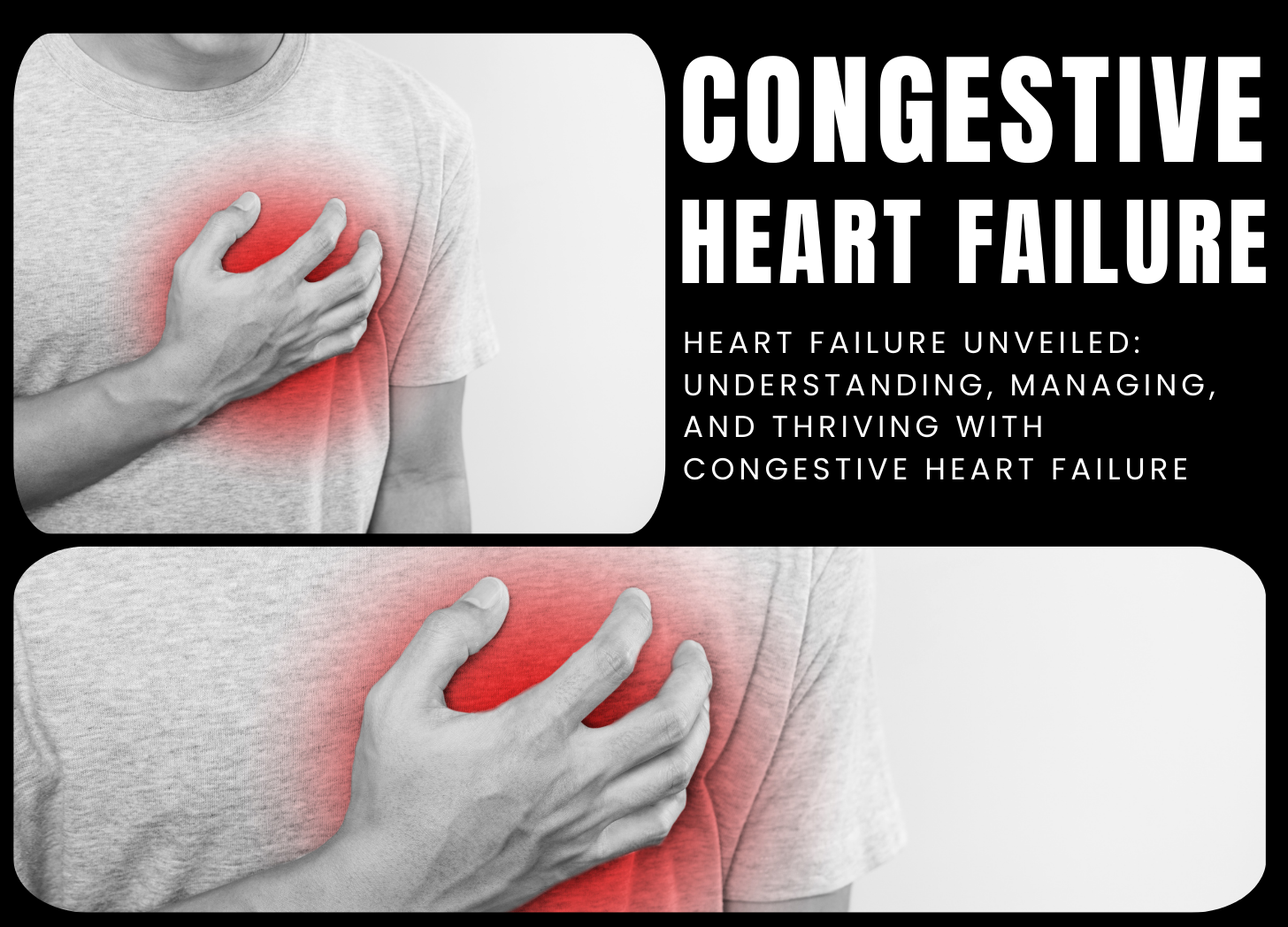Contact Us
Contact Us

Congestive Heart Failure (CHF) is a disorder that results from a number of underlying health conditions, all of which impair the heart’s capacity to perform properly. Coronary Artery Disease (CAD) is a prevalent cause, in which constricted or clogged arteries prevent blood flow to the heart, causing gradual damage and weakening of the heart muscle over time. Another important issue is hypertension, or high blood pressure, which causes the heart to work harder to pump blood, eventually leading to muscle damage and failure.
Cardiomyopathy, which is defined by anomalies in the heart muscle structure, can also cause CHF. This disorder can cause hypertrophy, thickness, or rigidity of the heart muscle, limiting its pumping function. Malfunctioning heart valves, also known as Valvular Heart Disease, can interrupt blood flow and strain the heart, eventually leading to cardiac failure.
Furthermore, a previous heart attack raises the risk of CHF by damaging the heart muscle and reducing its pumping ability. Furthermore, untreated diabetes can cause damage to blood vessels and neurons, reducing the heart’s ability to function properly.
The symptoms of CHF vary based on the severity and underlying reasons. Common symptoms include shortness of breath, particularly during physical activity or while lying down, persistent coughing or wheezing, fatigue, weakness, swelling in the legs, ankles, feet, or abdomen (edema), rapid or irregular heartbeat, decreased exercise tolerance, and persistent nausea or loss of appetite.
Early diagnosis and therapy are critical for treating CHF and increasing quality of life. Physical examinations, blood tests to assess heart function and check for underlying conditions, electrocardiograms (ECG or EKG) to measure the heart’s electrical activity, echocardiograms to evaluate the heart’s structure and function, and chest X-rays to detect signs of fluid buildup in the lungs are all common tests and exams used by healthcare providers to diagnose CHF.
Treatment for CHF seeks to relieve symptoms, enhance heart function, and avoid additional problems. This may include the use of drugs such as diuretics to prevent fluid buildup, ACE inhibitors or ARBs to relax blood vessels, beta-blockers to lower blood pressure and heart rate, and heart muscle strengthening treatments. Lifestyle changes like as eating a heart-healthy diet, getting regular exercise, quitting smoking, reducing alcohol use, and managing stress are also important. In some circumstances, medical procedures including implanted devices, coronary artery bypass surgery, or valve repair or replacement surgery may be required. Healthcare providers use regular monitoring to check symptoms, change prescriptions, and examine overall heart health.
Congestive heart failure is a serious illness that necessitates continual monitoring and medical treatment. Many patients with CHF can live satisfying lives while lowering their risk of problems with early detection, effective medication, and lifestyle changes. Individuals at risk or suffering symptoms of CHF should seek quick medical assistance to prevent further loss of heart function and improve outcomes.
References:
1.American Heart Association. (2022). Heart Failure. Retrieved from https://www.heart.org/en/health-topics/heart-failure
2.Mayo Clinic. (2022). Congestive Heart Failure. Retrieved from https://www.mayoclinic.org/diseases-conditions/heart-failure/symptoms-causes/syc-20373142
3.National Heart, Lung, and Blood Institute. (2022). What is Heart Failure? Retrieved from https://www.nhlbi.nih.gov/health-topics/heart-failure
Post a Comment